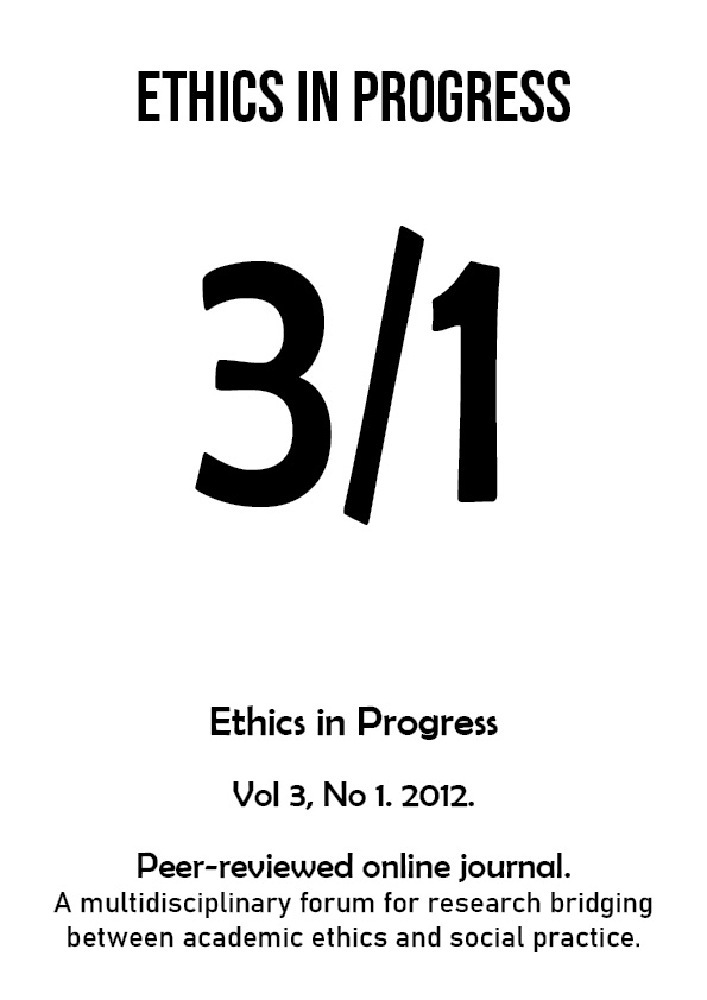Abstract
In the contemporary socio-economical scenario, knowledge sharing has become a crucial topic for discussion. As the economy of the societies becoming knowledge centric, knowledge production and dissemination by the educational and other social institutions must play an important role. In this paper, we discuss the notion of knowledge sharing as normative action involving two modes of function: voluntary and obligatory. Knowledge sharing as voluntary action presupposes personal ontology of knowledge. The knower as owner of knowledge has the right to disseminate knowledge. The reason of this dissemination could be sometimes to fulfill certain psychological desire or material needs, rather than purely value centric. Such a mode of sharing could be the reason for the degeneration of knowledge. It is because voluntary dissemination of knowledge does not go beyond the whims and fancies of the knower. On the other hand, knowledge sharing as an obligatory action emphasizes care and commitment. These normative elements could not only transform the attitude of the knower, but also help him to transcend the mere economic and psychological reasons of knowledge sharing. This transcendental logic of sharing would show how knowledge obtains its social ontology.References
Acharya, N. 1952. Vidya Prasamsa: Subhasita Ratna Bhandara. In Narayana (Ed.), 8th edition. Bombay: Nirnaya Sagar.
Audi, R. 2005. Wrongs within Rights. Philosophical Issues 15, Normativity: 121-139.
Audi, R. 2007. Moral Value and Human Diversity. New York: Oxford University Press.
Bratman, M. E. 1999. Faces of Intention: Selected Essays on Intention and Agency. Cambridge: Cambridge University Press.
Chattopadhyaya, D. P. 1991. When Knowing the World Makes Man Happy? In R.K. Mishra & B. M. Sagar (Eds.), Knowledge, Reality and Happiness. Shimla: Indian Institute of Advance Study.
Dalmiya, V. 2002. Why Should a Knower Care?, Hypatia 17: 34-52.
Dancy, J. 2000. Practical Reality, Oxford: Oxford University Press.
Hyman, J. 1999. How Knowledge Works. The Philosophical Quarterly 49: 433 – 451.
Kant, I. 1964. Groundwork for the Metaphysics of the Morals, trans. H. J. Patton. New York: Harper Torch Books.
Kant, I. 2008. Groundwork to the Metaphysics of the Morals, trans. T. Kingsmill Abbott. Radford: Wilder Publications.
Searle, J. R. 1970. Speech Acts: An Essay in Philosophy of Language. Cambridge: Cambridge University Press.
Searle, J. R. 1983. Intentionality: An Essay in Philosophy of Mind. Cambridge: Cambridge University Press.
Searle, J. R. 1992. The Rediscovery of the Mind, Massachusetts: The MIT Press.
Searle, J. R. 1994. The Connective Principle and the ontology of the Unconscious: A Reply to Fodor and Lepore. Philosophy and Phenomenological Research 55: 487-855.
Searle, J. R. 1995. The Construction of Social Reality. London: Penguin.
Searle, J. R. 2007. Freedom and Neurobiology: Reflection on Free Will, Language, and Political Power. New York: Columbia University Press.
Schmitz, K.L. 1994. The First Principle of Personal Becoming. The Review of Metaphysics 47: 757-774
Sen, A. 1987. On Ethics and Economics. New Delhi: Oxford University Press.
Toumela, R. 1991. We Will Do it: An Analysis of Group Intention. Philosophy and Phenomenological Research 51: 249-277.
Schumacher E. F. 1993. Small Is Beautiful: A Study of Economics As if People Mattered. London: Vintage.
Matusik, S. F. 2002. An Empirical Investigation of Firm: Public and Private Knowledge. Strategic Management Journal 23: 457-467.
Panda, R. K. 1997. Intentionality of Mental Reference (Discussion). Journal of Indian Council of Philosophical Research, Vol. XV: 93-97.
Pradhan, R. C. 2001. Recent Development of Analytic Philosophy. New Delhi: Indian Council of Philosophical Research.
Spencer, J. W. 2000. Knowledge Flows in Global Innovation System: Do U. S. Firms Share more Scientific Knowledge than their Japanese Rivals?, Journal of International Business Studies 31: 521-530.
Stanley, B. & Stanley, M. 1988. Data Sharing: The Primary Researcher’s Perspective. Law and Human Behaviour 12: 173-180.
Visvanathan, S. 2006. Friend and Freud. Outlook.
Werkmeister, W. H. 1967. Man and His Values. Lincoln: University of Nebraska Press.




